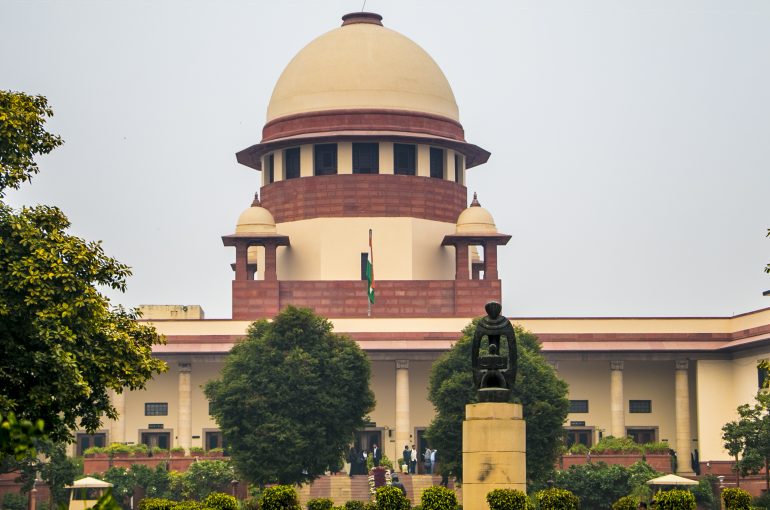JUSTICE DEFERRED; JUSTICE DENIED: SUPREME COURT’S REPROOF TO THE HIGH COURT ON SUSPENSION OF SENTENCE”

INTRODUCTION
In a significant ruling in Aasif @ Pasha v. State of U.P. & Ors., Criminal Appeal No. 3409 of 2025 (decided on 06.08.2025) the Supreme Court addressed the improper application of legal principles by the Allahabad High Court in rejecting an application for suspension of sentence. The Apex Court stressed the necessity for Appellate Courts to safeguard the effectiveness of appeals, especially where the sentence is for a fixed term and the appeal’s disposal is not imminent. This Judgment reiterates long-standing principles on Section 389 of the Code of Criminal Procedure (CrPC) while underscoring the risks of rendering appellate remedies illusory through procedural delays.
BRIEF FACTS
The Appellant, Aasif @ Pasha, was tried by the 2nd Additional Sessions Judge/Special Judge (POCSO Act), Meerut, for offences under Sections 7 and 8 of the POCSO Act, Sections 354, 354-Kha, 323, 504 of the IPC, and Section 3(1)(10) of the Scheduled Castes and Scheduled Tribes (Prevention of Atrocities) Act, 1989.
The trial concluded with his conviction and imposition of multiple sentences, the highest being four years’ rigorous imprisonment, with all sentences running concurrently.
On Appeal before the Allahabad High Court, the Appellant sought suspension of sentence under Section 389 CrPC. The High Court declined the request, citing the nature, gravity, and heinousness of the offence, without fully addressing the settled principles governing suspension of fixed-term sentences. Aggrieved, the Appellant approached the Supreme Court.
ISSUES
- Whether the High Court erred in refusing to suspend a fixed-term sentence without applying the principles laid down by the Supreme Court.
- Whether prolonged incarceration pending appeal, when the appeal is unlikely to be heard soon, renders the appellate right meaningless.
ANALYSIS OF THE JUDGMENT
The Supreme Court recalled the landmark decision in Bhagwan Rama Shinde Gosai v. State of Gujarat (1999) 4 SCC 421, which held that where a convict is sentenced to a fixed term, suspension of sentence should be considered liberally unless exceptional circumstances exist. The Court distinguished between cases of life imprisonment and fixed-term sentences, noting that the latter demand a more facilitative approach to suspension to prevent injustice through delay.
The Court found the High Court’s approach flawed for two main reasons:
- It focused excessively on reiterating prosecution evidence rather than addressing the criteria for suspension.
- It ignored the practical reality that appeals from 2024 were unlikely to be heard soon, meaning the Appellant could serve most or all of his sentence before his Appeal was decided.
The Supreme Court also cited Omprakash Sahni v. Jai Shankar Chaudhary (2023) 6 SCC 123, clarifying that while serious offences require careful scrutiny, Appellate Courts must look for “palpable” or “gross” indications on record that the conviction may not be sustainable before deciding on suspension.
Ultimately, the Court remanded the matter to the High Court for fresh consideration, directing it to decide within 15 days, keeping in mind that only compelling public interest considerations should outweigh the right to suspension in fixed-term sentence cases.
CONCLUSION
This ruling reinforces that Appellate Courts must uphold the balance between the gravity of offences and the meaningful exercise of appellate rights. The Supreme Court’s admonition serves as a reminder that justice delayed by procedural inertia can amount to justice denied. In fixed-term sentence cases, particularly where appeals are unlikely to be heard promptly, refusal to suspend sentence without sound reasons risks turning the appeal into a hollow formality. The decision strengthens the jurisprudence that procedural fairness must operate in tandem with substantive justice.
SARTHAK KALRA
Senior Legal Associate
The Indian Lawyer & Allied Services
Please log onto our YouTube channel, The Indian Lawyer Legal Tips, to learn about various aspects of the law. Our latest Videos, titled “Religion and the Law in India |Constitutional Rights Explained |Advocate Sushila Ram Varma| & “भारत में धर्म और कानून | आपके संवैधानिक अधिकार | एडवोकेट सुषीला राम वर्मा” can be viewed at the link below:
https://www.youtube.com/watch?v=BOwNImOWIJs
https://www.youtube.com/watch?v=zOrpU1Jpyjk





































Leave a Reply